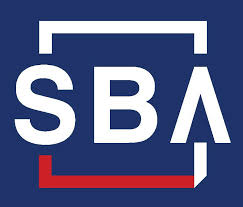
Business Insurance Coverage Questions RE: Covid-19
The link below update focuses on insurance coverage relevant to an employer. Insurance may play a key role in insulating businesses from labor-related losses, as well as other COVID-19 induced harm. Topics include Workers Compensation, Employment Practices Liability Insurance, Business Interruption Insurance, Directors and Officers Insurance, Key Person, and other types of insurance.
Source: Murphy Austin Labor and Employment Law Team
Insurance Coverage Questions RE-Covid 19
Read More
Covid-19 Business Assessment Tool
Below is a tool that some Private Equity portfolio companies are using to assess the risk areas in their businesses and develop an action plan to address them. One of the things that many crisis management experts advise, and much of what we learned from the 2008-2012 Great Recession, is that it is critical in times of significant turmoil and uncertainty to:
- Understand and actively track what you CANNOT control
- Thoroughly assess and decisively act on what you CAN control
- Develop a plan (and a contingency plan with defined triggers for implementing)
- Communicate that plan effectively and reinforce it frequently. Make sure everyone understands their role and priorities
- Allocate resources where they can be most impactful
- Conduct frequent reassessments and accountability checkpoints
- Keep your teams focused on the important action items and positive progress being made
- Manage to the short-term impacts and priorities, but don’t take your eye off the long-term view
- Stay positive and focused on the light at the end of the tunnel that makes near-term sacrifices worthwhile
Source: Curt Rocca – DCA Partners
Read More
Small Business Guide and Checklist for Covid-19 SBA Emergency Loans
The link below will provide an overview from the US Chamber Of Commerce to help guide small business owners through the SBA emergency loan process.
The Coronavirus Aid, Relief, and Economic Security (CARES) Act allocated $350 billion to help small businesses keep workers employed amid the pandemic and economic downturn. Known as the Paycheck Protection Program, the initiative provides 100% federally guaranteed loans to small businesses.
Importantly, these loans may be forgiven if borrowers maintain their payrolls during the crisis or restore their payrolls afterward.
The administration soon will release more details including the list of lenders offering loans under the program. In the meantime, the U.S. Chamber of Commerce has issued
this guide to help small businesses and self-employed individuals prepare to file for a loan.
Source: US Chamber Of Commerce

SBA Standard Information Brief On EIDL Program
The U.S. Small Business Administration’s (SBA) low-interest Economic Injury Disaster Loans (EIDLs) are now available to small businesses, small agricultural cooperatives, small aquaculture businesses and private nonprofit organizations affected by the loss of revenue due to the Coronavirus. As of 3.24.20, the below provides details for Economic Injury Disaster Loans- eligibility requirements, loan terms, credit & collateral requirements, forms to be completed, and contact information.
SBA EIDL INFO Coronavirus v032420
Source- SBA.gov
Read More
Covid-19 Employer FAQ’s
The COVID-19 crisis has impacted the world in so many profound ways, one of which includes how businesses manage their relationships with their employees. The following FAQ addresses several questions businesses are raising in regard to employment-related issues created by the unprecedented COVID-19 situation such as leave, safety, wages, benefits, taxes, and possible insurance coverage. The COVID-19 crisis, and the governmental and societal response to it, has meant that addressing COVID-19 in the employment context has been somewhat of a moving target. In other words, although this FAQ may be current as of the date it is published, it may not still be current the day you read it. It is advisable to consult with counsel prior to altering or taking any employment actions.
COVID-19-Employer-FAQs-MurphyAustin_3_23_20
Source: MURPHY AUSTIN ADAMS SCHOENFELD LLP / 555 Capitol Mall, Suite 850, Sacramento, CA 95814 / 916.446.2300 / murphyaustin.com
Read More
Covid-19 Small Business Resource Update As of March 23rd, 2020
Federal Changes- below is an update on items affecting/supporting small businesses as of 3.23.20. Naturally, items are changing rapidly, and we will continue to provide future updates.
SBA Disaster Assistance – Available NOW– get started here.
Economic Injury Disaster Loan Program:
- Activated by States “Emergency” declaration- Loan amount up to $2 million – 3.75% business, 2.75% Non-Profit
- Working Capital & Business Expense only
- Cannot include “lost profits”
- These loans may be used to pay fixed debts, payroll, accounts payable and other bills that can’t be paid because of the disaster’s impact.
- 1-year payment deferment from disbursement- SBA offers loans with long-term repayments in order to keep payments affordable, up to a maximum of 30 years.
- Terms are determined on a case-by-case basis, based upon each borrower’s ability to repay.
Must meet 3 qualifications:
- Eligibility – Business & Non-Profits (no church’s or worship centers)
- Credit – lower than commercial standards
- Repayment ability – PRE-DISASTER CONDITION
SBA Administration update:
- Cutting Red Tape – changing current policy
- If a business receives a DECLINE – the notice is referred to the local District SBA office same day and an SBA official MUST contact Borrower within 24 hours to match them with a different lender
- FEMA is supporting SBA with 500 additional support personnel
Additional Federal Update
Temporary Tax Changes:
- IRS Notice 2020-17
< $1million in taxes due = payer able to defer payment without penalties or interest until July 15, 2020 - Applies to all individuals and business • filing calendar year return
1st quarter estimated payment - Interest and penalties will begin to accrue on July 15, 2020
Families First Coronavirus Response – HR 6201:
- Amends FMLA definitions
- Applies to all employers < 500 employees (including govt)
- Sec of Labor can exempt employers < 50 emp if business viability is in jeopardy
- Exemptions for Health Care Providers and Emergency Responders
Employee Health Emergency Leave (Div. C)
- First 10 days unpaid (employee may use accrued time)
- Leave paid thereafter at no less than 2/3 of employee regular pay
- Maximum of $200 per day or $10,000 in aggregate
- Variable schedules = avg number of hours over prior 6 months
- Job restoration upon return (or equivalent)
- < 25 employees, then “reasonable efforts” over 1-year window
- If the position does not exist due to coronavirus emergency, then no obligation
- Exceptions for Health Care Providers & Emergency Responders
Emergency PAID Sick Leave (Div. E)
- 2 weeks (80 hrs.) of paid sick time if employee unable to work
- Quarantine or isolation order
- Caring for another – child, relative, quarantined individual
- Experiencing conditions similar to Coronavirus
- May not exceed $511 per day or $5,110 in aggregate
- NO tenure requirements
- Employer cannot require employee to use accrued time
Employer Tax Credits
- To offset employer costs
- 100% of qualified Employee Emergency Leave
- 100% of qualified Emergency Paid Sick Leave
- Refundable payroll tax credit allowed against employer portions of Social Security and Railroad Retirement payroll taxes
- Tax credit for wages under both types of leave- Includes Employer-paid portion of employee’s health plan coverage while on leave
Read More

Finding the Best Business for You

Owning a business and owning the right kind of business for you are, of course, two wildly different things. Owning the wrong kind of business can make you absolutely miserable. So if you are considering buying a business, it is prudent that you invest the time and effort into determining the best kind of business for your needs and your personality. In a recent Forbes article, “What is the Right Type of Business for You to Buy?” author Richard Parker explores how buyers should go about finding the right business fit.
Parker is definitely an expert when it comes to working with buyers as he has spoken with an estimated 100,000 buyers over his career. In that time, Parker has concluded that it is critical that you don’t “learn on your own time.”
His key piece of advice concerning what type of business to buy is as follows. “While there are many factors to be considered, the answer is simple: whatever it is you do best has to be the single most important driving factor of the revenues and profits of any business you consider purchasing.” And he also believes that expertise is more important than experience. Parker’s view is that it is critical for prospective buyers to perform an honest self-assessment in order to identify their single greatest business skill and area of expertise. The last thing you want to do is pretend to be something that you are not.
Parker makes one very astute point when he notes, “Small business owners generally wear many hats: this is usually why their businesses remain small. Remember that every big business was once a small business.” As Parker points out, whoever is in charge of the business will ultimately determine how the business will evolve, or not evolve. Selecting the right business for you and your skillsets is pivotal for the long-term success of your business.
All of this adds up to make the process of due diligence absolutely essential. Before buying a business, you must understand every aspect of that business and make certain that the business is indeed a good fit for you. According to Parker, if you don’t love your business, it will have trouble growing. This point is impossible to refute. Owning and growing a business requires a tremendous amount of time and effort. If you don’t enjoy owning and/or operating your business, success will be a much more difficult proposition.
Finding the right business for you is a complicated process even after you have performed a proper evaluation of your skills and interests. After all, do you really want a solid business with great potential for growth that you would hate owning? By working with brokers and M&A advisors, you can find the best business fit for your needs, personality, and goals. These professionals are invaluable allies in the process of discovering the right business for you.
Copyright: Business Brokerage Press, Inc.
The post Finding the Best Business for You appeared first on Deal Studio – Automate, accelerate and elevate your deal making.

Great Tips for Selling Your Business

It takes preparation and focus to sell most businesses. The reality of the situation is that it can take years to achieve this goal. Partnering with a business broker or M&A Advisor is a smart step towards selling any business, as these pros know the very best tips. In that spirit, let’s take a look at some great tips for selling your business.
Getting your business ready to sell means carefully evaluating the foundation. Any significant problem can send buyers “running for the hills,” so be sure that you work out any problems well before placing your business on the market. If you have any litigation or environmental issues, you most definitely want to address those issues before it is time to sell. Nothing will scare away prospective buyers quicker than pending litigation or the specter of a potentially costly environmental clean-up.
A second key issue you’ll want to address is determining who exactly has the legal authority to sell the business. If a board of directors or majority stockholder situation is in place, then selling a business can become more complex than it would be if you were dealing with a sole proprietorship or partnership. Again, the last thing you want is for “legal surprises” to occur when you get ready to sell a business.
If you have non-negotiable items, be certain that those items are discussed upfront. Revealing your non-negotiable items at the very beginning of negotiations will save everyone involved a great deal of trouble.
Tip three involves maintaining a flexible mindset. In most circumstances, you simply can’t have everything that you want. Both buyers and sellers need to be flexible. Sellers will want to be flexible about any real estate. Buyers may not want real estate associated with a given business, and you need to be prepared for this. Sellers should also be prepared to accept valuation multiples for lack of management depth and other factors, such as reliance on a small number of customers.
At the end of the day, sellers should partner with experienced professionals such as attorneys and business brokers. You’ve put a lot of time, energy and resources into building your business. When it comes time to sell, it is only prudent to put together the best team in order to achieve optimal results.
